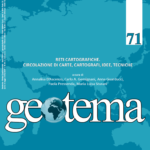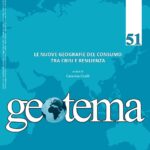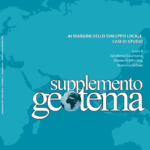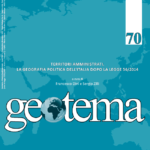Enrico Squarcina, Erica Neri
Letteratura e paesaggio sonoro: la voce del mare ne La Lunga rotta di Bernard Moitessier
Nel presente contributo si utilizzano le pagine letterarie di Bernard Moitessier per analizzare la sua esperienza dell’ambiente, in particolare di quello marino e, più in dettaglio, con riferimento alla sua componente sonora. Si è voluto verificare se fosse possibile mettere in relazione la metodologia d’analisi testuale proposta da Maria de Fanis (2001) con le categorie di analisi del paesaggio sonoro proposte da Murray Schafer (1985) non solo per descrivere l’ambiente, ma, soprattutto, per far emergere come il paesaggio sonoro possa diventare la metafora delle complesse relazioni tra gli esseri umani e l’ambiente (Lando, 1993, p. 10). Il testo prescelto è La lunga rotta (1972) di Bernard Moitessier (1925-1994), un navigatore dalle notevoli capacità di scrittura, particolarmente attento alla componente sensoriale della sua esperienza del mare. L’autore sottopone gli spazi marini ad uno sguardo (e all’ascolto) peculiare che trasforma l’ambiente che lo circonda nel simbolo dei propri sentimenti, del senso della vita, sua e dell’intero genere umano e del rapporto tra quest’ultimo e il pianeta in cui vive.
Literature and Soundscape: The Voice of the Sea in Bernard Moitessier’s La lunga rotta
In this contribution we use the literary pages to analyse the experience of the environment, in particular the marine environment and, more in detail, with reference to its sound component. We wanted to see if it was possible to relate the textual analysis methodology proposed by Maria de Fanis (2001) with the categories of soundscape analysis proposed by Murray Schafer (1985) not only to describe the environment, but above all, to show how the soundscape can become a metaphor for the complex relationships between human beings and the environment (Lando, 1993, p. 10). The chosen text is La lunga rotta (1972) by Bernard Moitessier (1925-1994), a navigator with remarkable writing skills, particularly attentive to the sensory component of his experience of the sea. The author subjects the marine spaces to a peculiar look (and sound) that transforms the environment that surrounds him into a symbol of his own feelings, of the meaning of life, his and the whole human race and the relationship between the latter and the planet in which he lives.
Littérature et paysage sonore : la voix de la mer dans La lunga rotta de Bernard Moitessier
Dans cette contribution, les pages littéraires sont utilisées pour analyser l’expérience de l’environnement, en particulier l’environnement marin et, plus en détail, en référence à sa composante sonore. Nous avons voulu voir s’il était possible de relier la méthodologie d’analyse textuelle proposée par Maria de Fanis (2001) aux catégories d’analyse du paysage sonore proposées par Murray Schafer (1985) non seulement pour décrire l’environnement, mais surtout pour montrer comment le paysage sonore peut devenir une métaphore des relations complexes entre les êtres humains et l’environnement (Lando, 1993, p. 10). Le texte choisi est La lunga rotta (1972) de Bernard Moitessier (1925-1994), un navigateur aux qualités d’écriture remarquables, particulièrement attentif à la composante sensorielle de son expérience de la mer. L’auteur soumet les espaces marins à un regard (et une écoute) particulier qui transforme l’environnement qui l’entoure en un symbole de ses propres sentiments, du sens de la vie, à lui et à toute l’humanité et de la relation entre cette dernière et la planète dans laquelle il vit.
Parole chiave: geografia letteraria, paesaggio sonoro, spazi marini
Keywords: literary geography, soundscape, marine spaces
Mots-clés : géographie littéraire, paysage sonore, espaces marins









